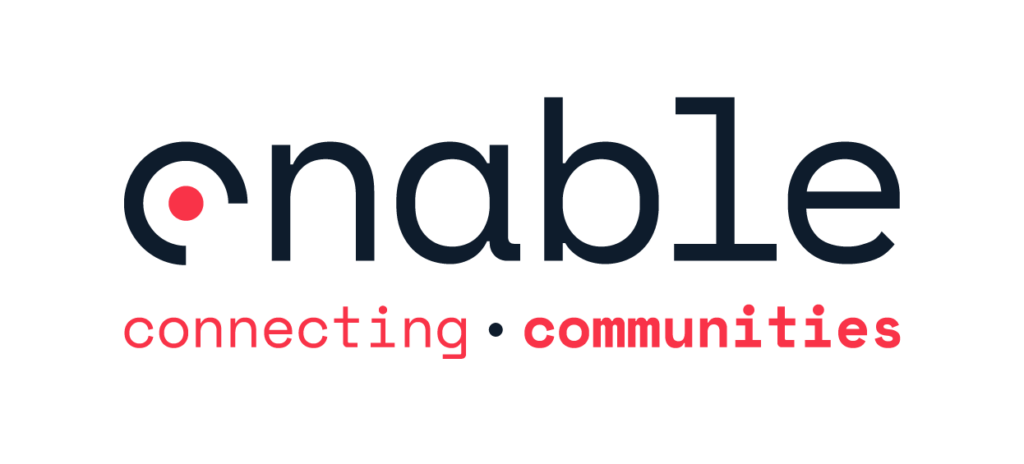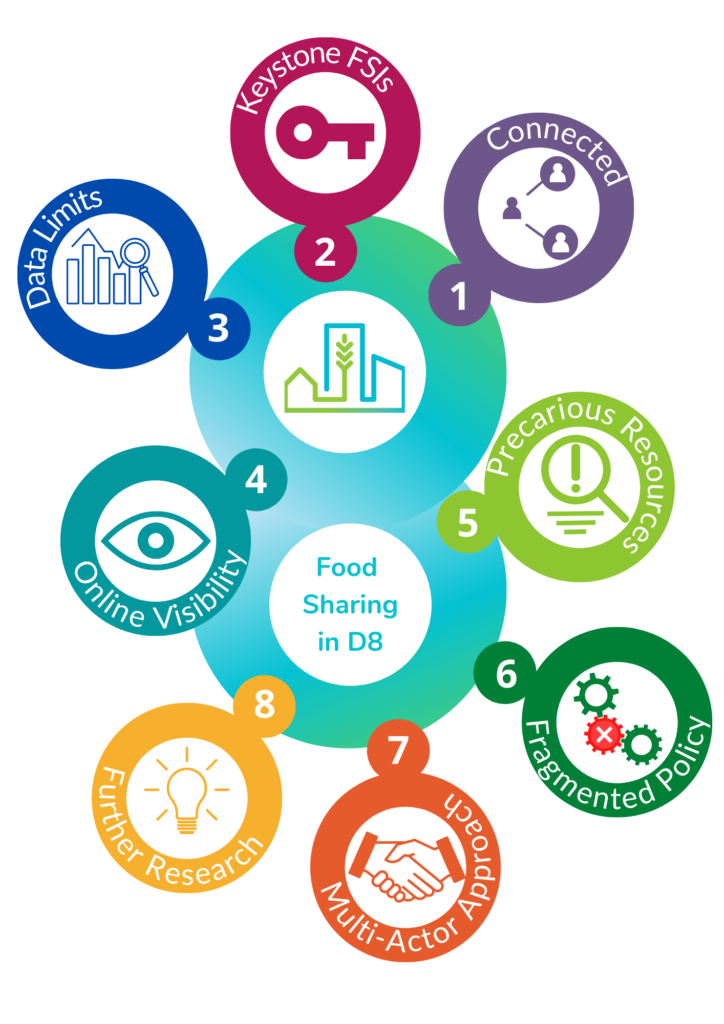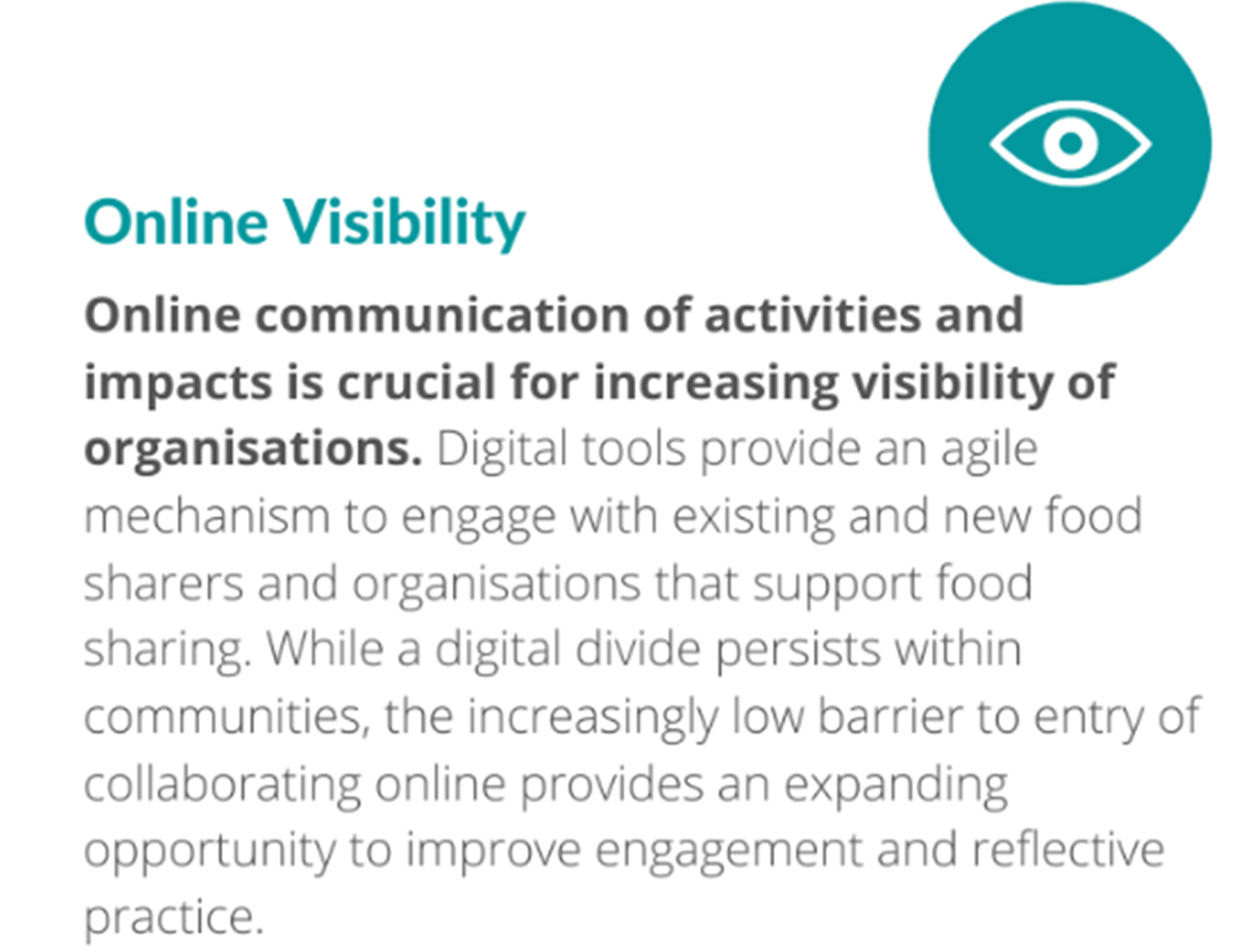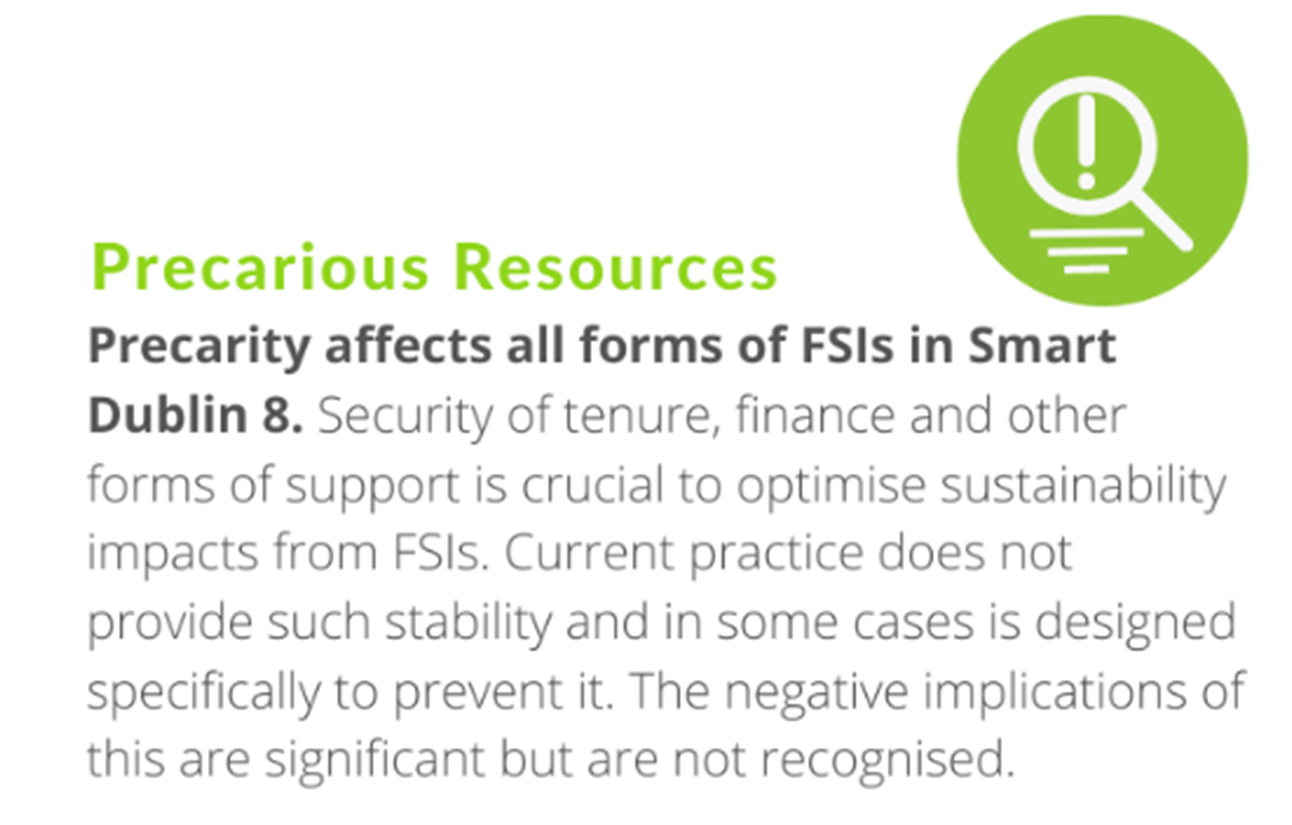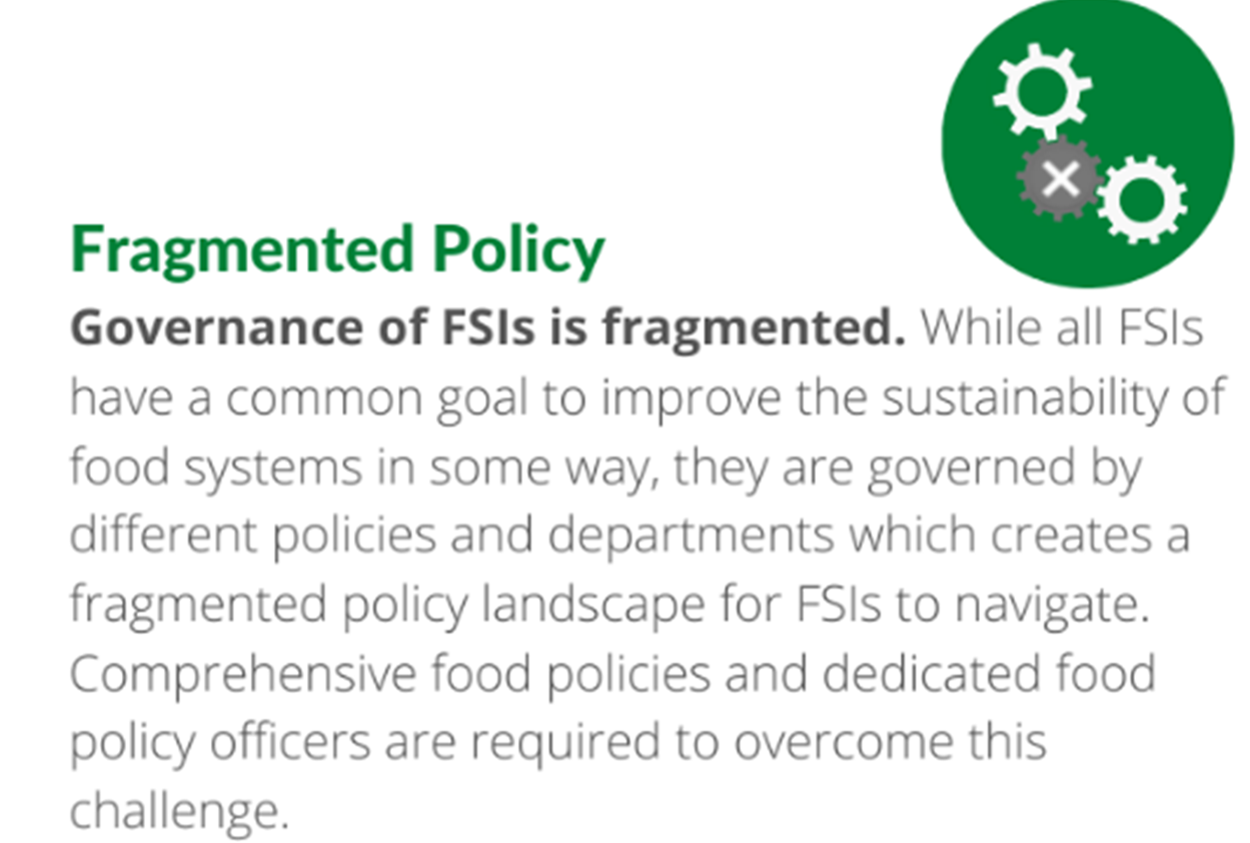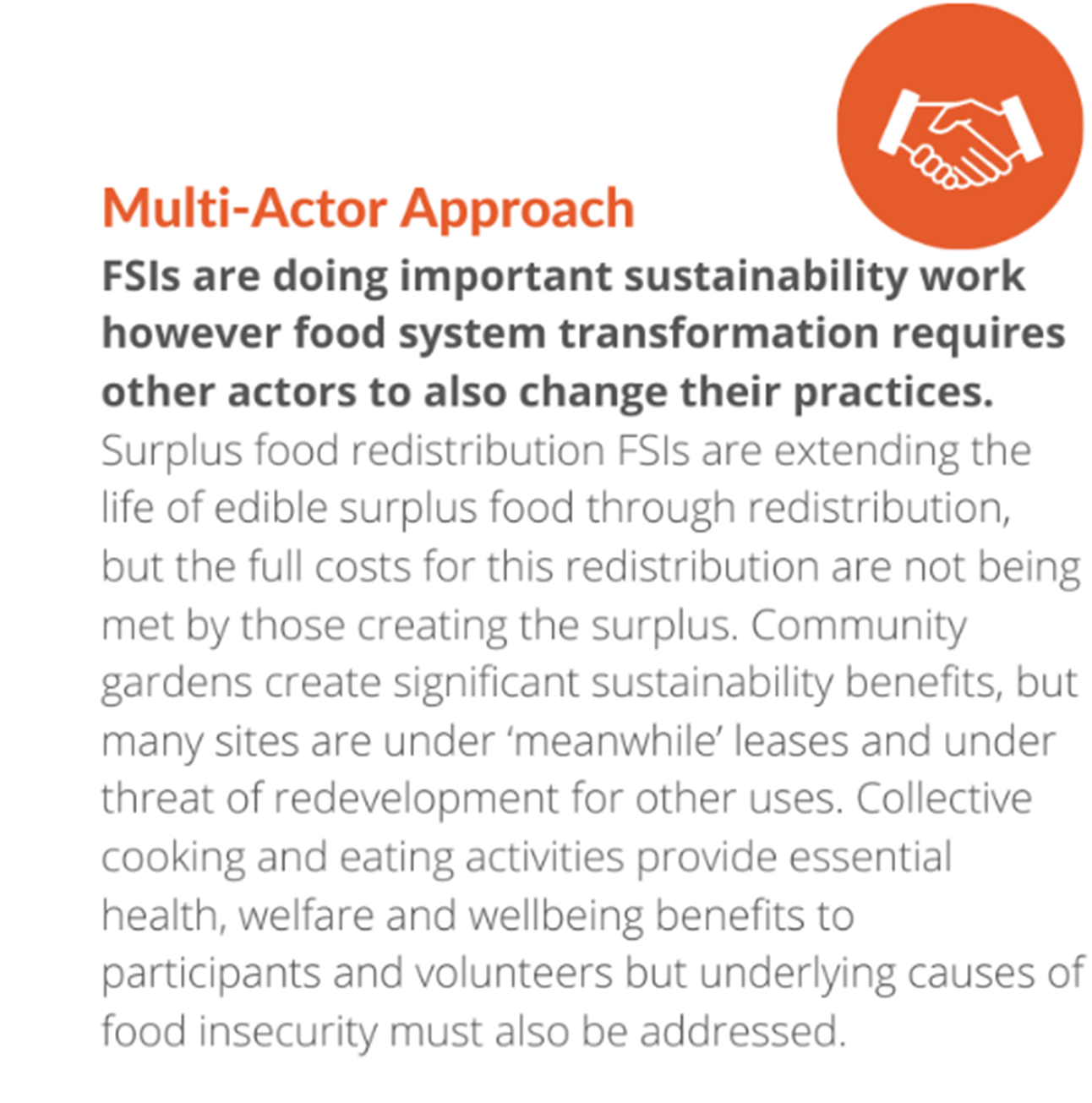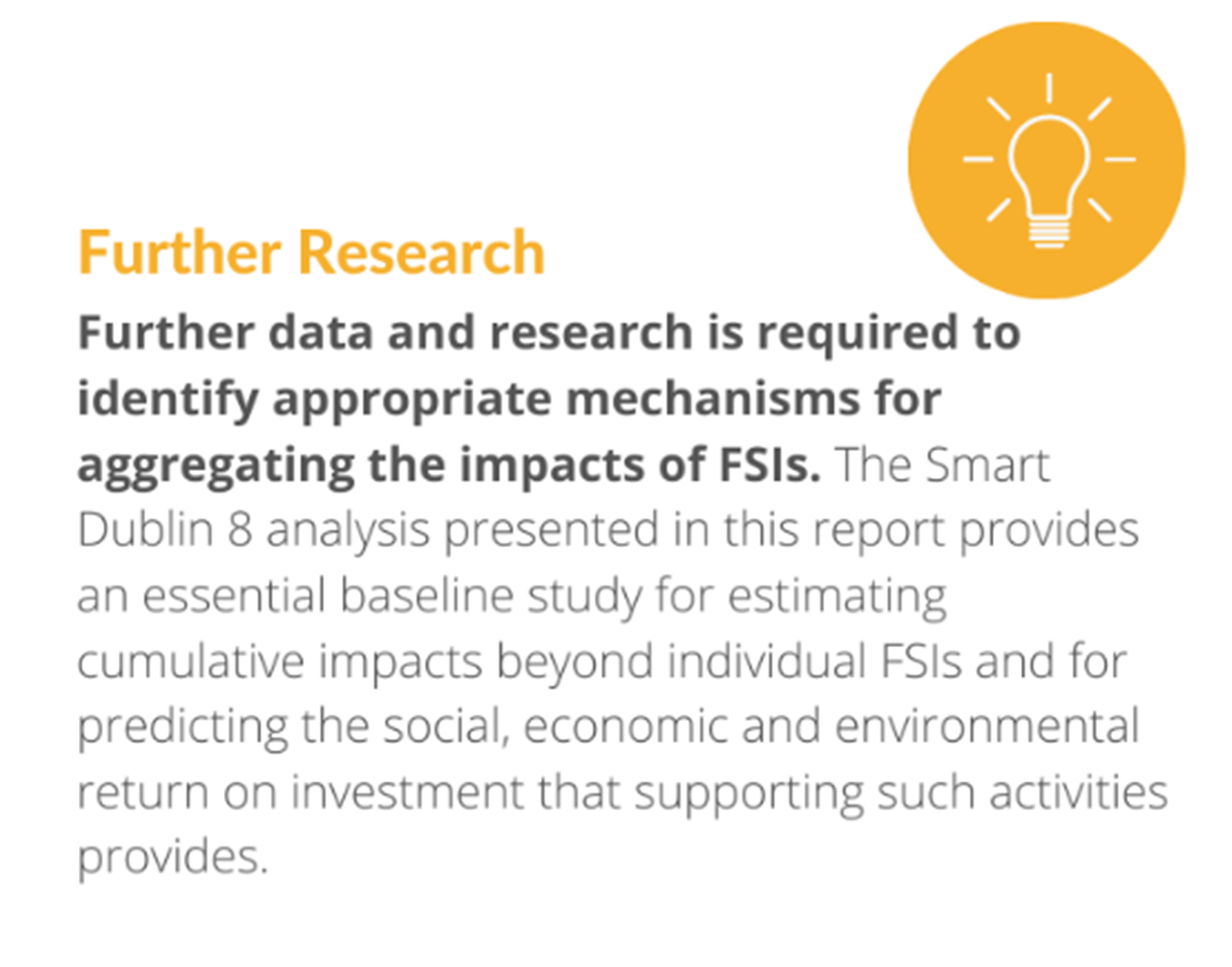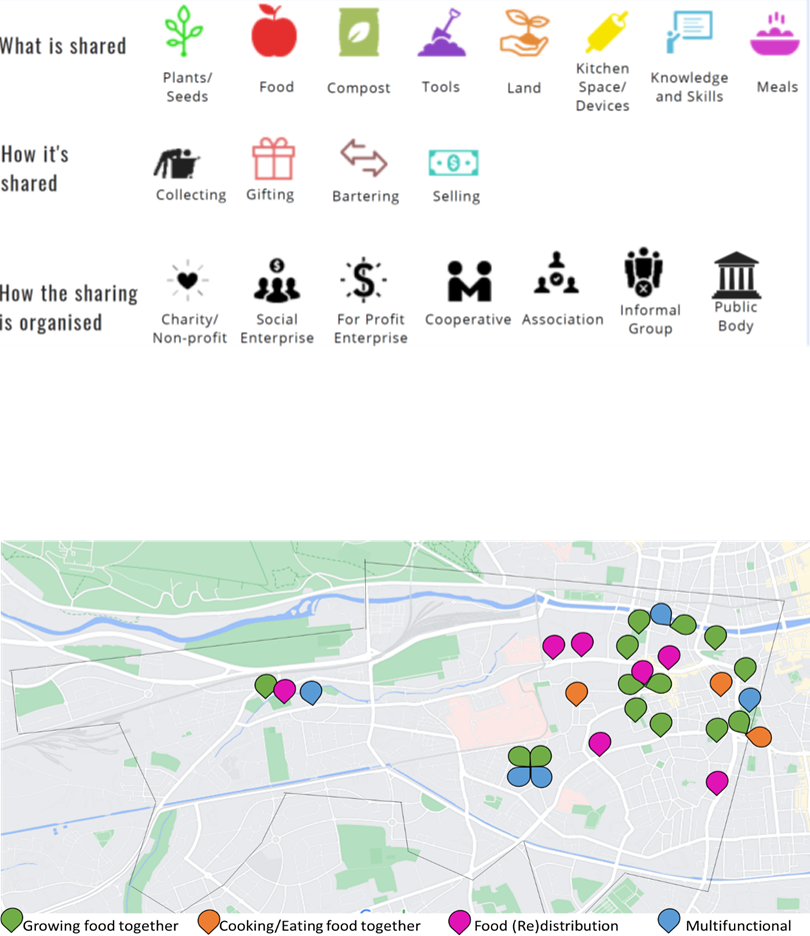Enable and SHARECITY
This research is funded by SFI’s ENABLE Spoke, as part of their activities on citizen engagement. ENABLE Research funding has supported the application of SHARECITY’s international findings across 100 cities to be applied at a district level. Specifically, this involved applying the SHARECITY100 mapping method and the SHARE IT sustainability impact assessment toolkit to food sharing in two Smart Dublin districts: Smart D8 and Smart Balbriggan.
Sustainability of food sharing in Dublin 8
Smart D8 aims ‘to improve the health and wellbeing of citizens in Dublin 8 through collaboration and innovation’, which can be progressed by food sharing. There are many established and emerging Food Sharing Initiatives (FSIs) in the Dublin 8 area, but there is currently no single directory for identifying them, meaning their visibility can be low, even within the locality. Equally, few FSIs currently collect or analyse data on their impacts creating a knowledge gap for the organisations in terms of identifying and understanding their impacts and communicating these to funders, supporters and regulators.
As part of the SFI ENABLE Spoke’s activities on citizen engagement and in partnership with Smart Dublin 8, we mapped and categorised all food sharing activities in the district and measured the sustainability impacts of six illustrative case studies. The findings of this research are presented in this report to provide evidence to Smart D8 and Dublin City Council (DCC) to inform strategic planning to improve the health and wellbeing of citizens in the district.
8 points on food sharing in D8
Food Sharing Initiatives in D8
Sustainability of food sharing in Balbriggan
As part of the SFI ENABLE Spoke’s activities on smart and sustainable citizen engagement and in partnership with Smart Balbriggan, emerging and established food sharing activities in Balbriggan were identified and the sustainability impacts of four case study projects were measured. The findings of this research are presented here to inform strategic planning on community-based food initiatives and their role in meeting the core priorities set out in Our Balbriggan.
The research employed the mapping and assessment approaches co-designed in the European Research Council-funded SHARECITY project, in particular employing the SHARE IT sustainability impact assessment toolkit to conduct a sustainability impact assessment (SIA) of FSIs. The tool is backed by five years of internationally conducted and verified research in the area food sharing.
This report maps and presents the social, economic and environmental benefits being achieved in Balbriggan by groups who grow food together, cook and/or eat food together and are redistributing surplus food. We also highlight key challenges, resources and opportunities for food sharing, and conclude with four recommendations to maintain and increase the positive sustainability impacts of food sharing in Balbriggan
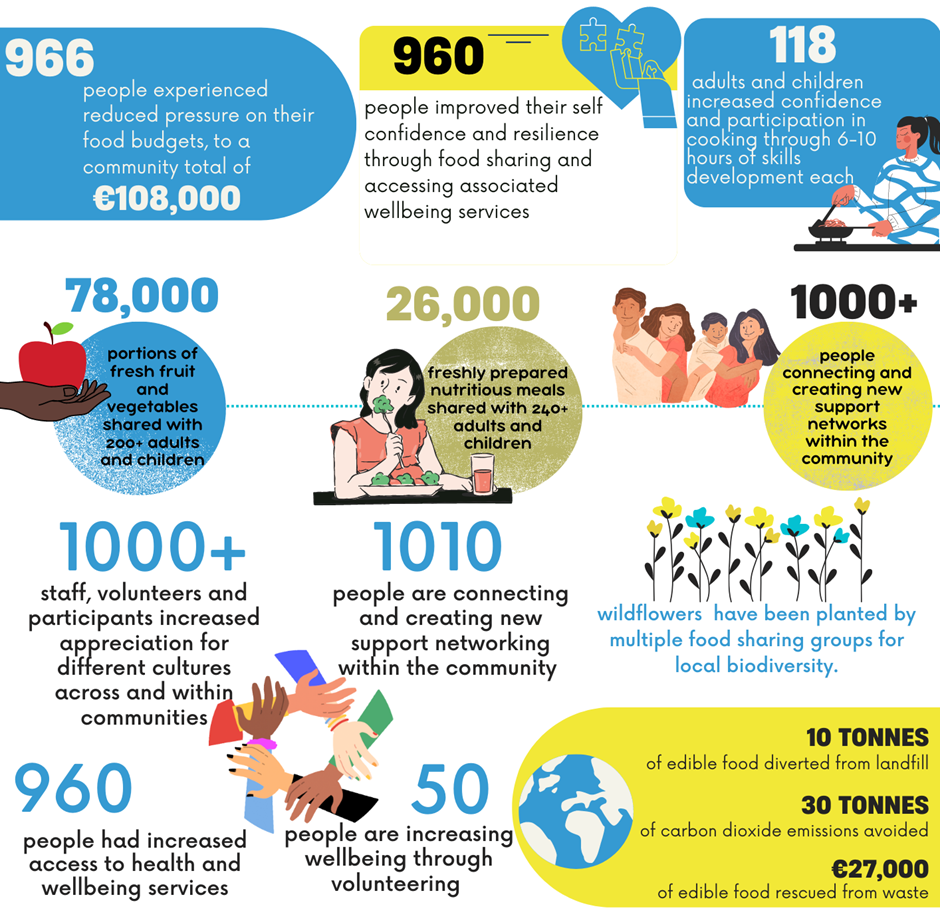
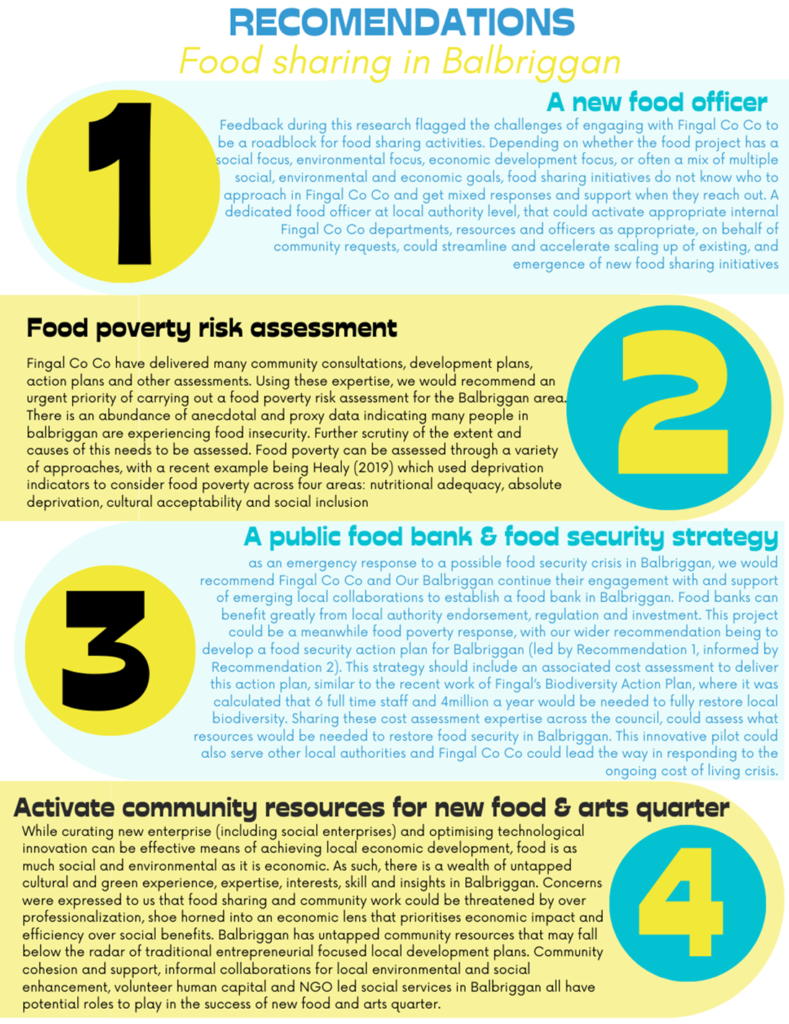
© 2015 - 2025 ShareCity | Web Design Agency Webbiz.ie
